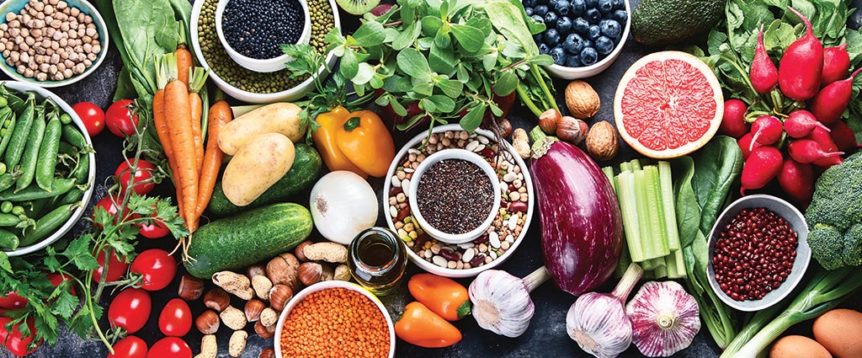Curious about the meat alternative fad? You’re not alone. According to a new Gallup poll, nearly one in every four Americans has cut back on eating meat, with most citing health as the reason. Which is why it’s no surprise that plant-based meats are having a moment.
From Burger King’s “Impossible Whopper” to your friend’s Beyond Meat burgers at her backyard BBQ, plant-based meat alternatives are everywhere these days. But what, exactly, are these meat-free meats made of? Read on for some of the most common ingredients in plant-based meats, and what you need to know about each.
Vegetable protein
Typically listed as pea protein, this ingredient is used as an animal protein substitute, says Mark Windle, a registered dietitian from Edinburgh, Scotland and nutritionist for Fitness Savvy.
“Pea protein has been associated with positive effects, such as lowering cholesterol,” he says. Even better, unlike nut-based proteins, pea protein isn’t considered a major allergen. “However, keep in mind that pea protein is a derivative of legumes, so those with a peanut allergy should be careful,” says Windle.
Seitan
This processed wheat gluten is high in protein, low in fat, and rich in selenium, iron, calcium, phosphorus and copper—making it a nutritious ingredient in many plant-based meats, says Nicole DeMasi, a registered dietitian and certified diabetes educator. “Even though seitan is made from wheat, it’s extremely low in carbs—just 4 grams per serving—due to the way it’s processed,” she says. “It’s also a great soy-free option for those with allergies, but those with celiac disease or a sensitivity to gluten should avoid this ingredient.”
Coconut oil
This oil has been widely praised for its fat-burning and appetite-reducing benefits. However, it’s important to remember that more than 80 percent of the calories in coconut oil come from saturated fat, which is linked to high levels of low-density lipoprotein (LDL) cholesterol in the blood—the “bad” kind of cholesterol that clogs arteries, notes Windle.
“The American Heart Association recommendations say you should have a max of 13 grams of saturated fat per day,” says Windle. “Considering a plant-based burger can have up to 20 grams of saturated fat from coconut or canola oil, or a combination of both, this can be a major contributor to fat intake if eaten in excess.”
Beet juice
Meat-free burgers often contain beet juice, designed to loosely imitate that red color of rare burgers. Unlike more artificial ingredients that give plant-based meats an animal-protein look and texture, beet juice—made from steamed, boiled or roasted beets—is a good-for-you ingredient.
“Beet juice contains folate, vitamin C, fiber and antioxidants, all of which can help protect against heart disease and some types of cancer,” says Windle. Remember, however, that the amount of beets used in plant-based meats is minimal. Translation: Your favorite vegan “burger” isn’t going to be a major source of these important nutrients found in beets, adds Windle.
Yeast extract
Often used in plant-based meats to impart an animal-meat flavor, yeast extract also adds a taste sensation known as “umami,” says Windle. “It’s a savory taste typically associated with meat and fish products,” he says. In addition to amping up the flavor factor, yeast extract is no slouch when it comes to boosting nutritional value: It’s an important source of vitamin B12, which is crucial for vegans and vegetarians because it’s predominantly found in animal products such as meat, fish, milk and eggs, Windle adds.
“Vitamin B12 is needed to maintain red blood cell production and it’s crucial in converting food to energy,” he says. “Vitamin B12 also helps us fight fatigue and maintain a healthy nervous system.”
Soy leghemoglobin
This ingredient found in the roots of soybean plants is used in many plant-based burgers because of its ability to make fake meat “bleed” when cooked, says Trey Triplette, a certified performance nutritionist and AADE Diabetes Coach. And while it is rich in non-heme iron (a type of iron found in many plants), it’s different than the heme iron found in meat and seafood. More importantly, your body absorbs heme and non-heme iron differently.
“Plant-based, non-heme iron is absorbed by your body at a much lower rate than heme iron found in animal products,” says Triplette. “Due to this, vegans have a higher probability of iron deficiency anemia, and a higher likelihood of vitamin B12, iodine, zinc, vitamin D and calcium deficiencies.”

